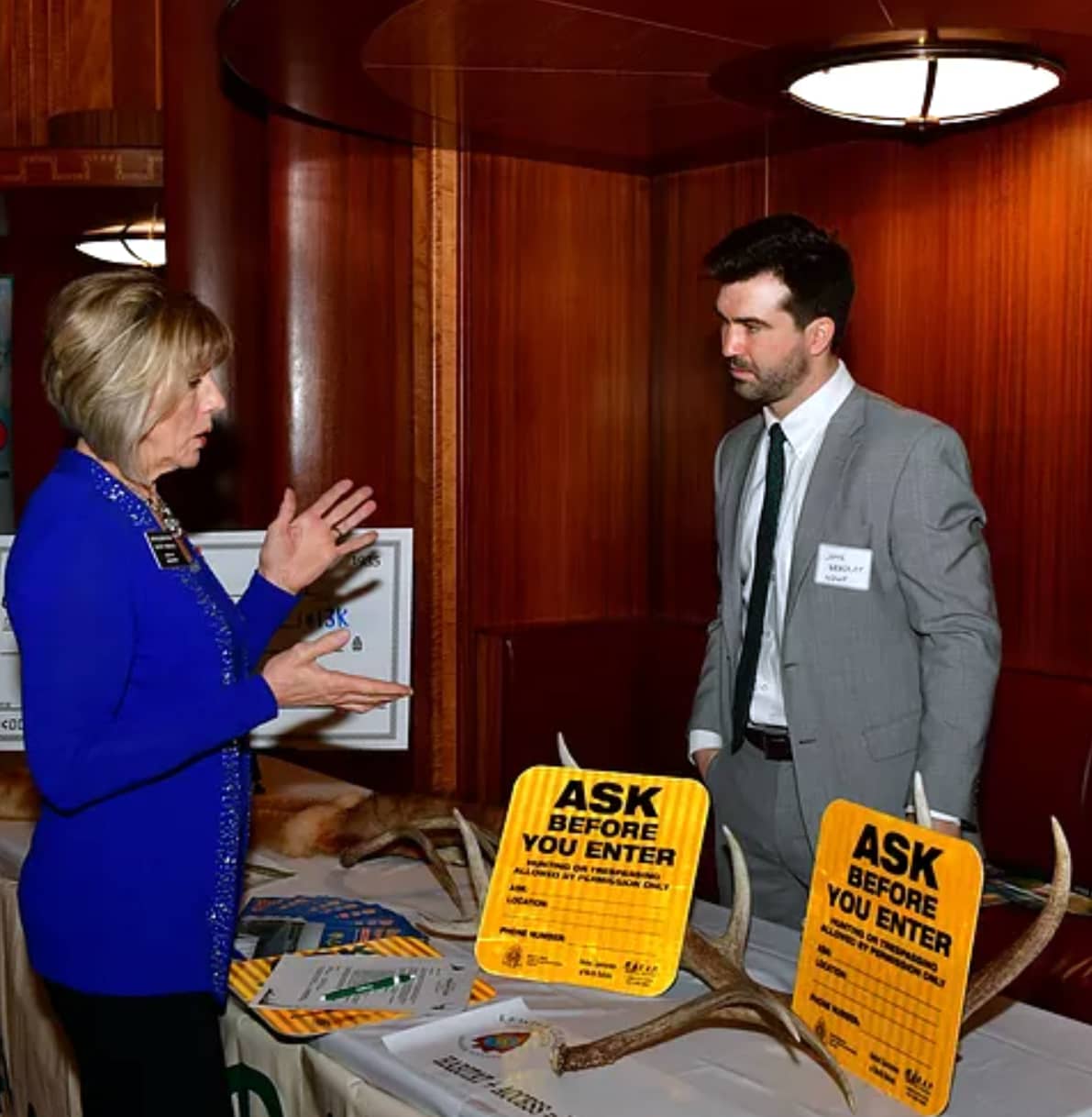
The author discusses legislation with an elected official at the capitol in Bismarck during the 2019 legislative session. DEO Photo by John Bradley.
By John Bradley
In every session of the North Dakota Legislature, numerous bills come forward that affect our public lands, waters, fish and wildlife resources.
In addition, the North Dakota Game and Fish Department (NDG&F) needs to craft a budget that meets the needs of those resources, as well as the North Dakotans who enjoy wildlife, fish, and our lands and waters in numerous ways. It is critical that hunters and anglers pay attention to what is going on in Bismarck and lend their voice when it is needed. Most sportsmen and women care deeply about wildlife conservation and our sporting opportunities and when we are faced with potential changes, it seems we let that care turn into knee jerk reactions. To conserve energy and focus on real threats, here are a few tips and tricks to eliminate the unnecessary responses and engage purposefully.
Contain that keyboard warrior
As much as we all love to engage in a good old-fashioned debate, I am convinced that social media is not the best place to do it. Policy is nuanced, and far too detailed to communicate in a tweet or an Instagram comment. While it can be done, I’d instead encourage social media as a tool to identify conservation issues and then do the work to research a bill or policy before jumping into the debate. I think the rules of debate remain the same, don’t engage unless you know both your facts and your opponents, and you have the time for respectful discourse.
Reach out to decision-makers
We have all seen our legislators sign on to a bad wildlife bill. Before calling out your legislators as sell-outs, give them a chance to explain their position. Our state senators and representatives work directly with policy and usually have access to more in-depth information from the NDG&F, the Department of Agriculture and other agency experts. While they may not always follow that expert advice, they probably have a reason why. You may disagree but hearing their reasoning and explaining your side calmly goes a lot further than attacking them on social media. Citizen involvement is critical to our democracy, and respectful communications and relationships with our elected officials and decision-makers are fundamental to effective policy creation.
You are a far more effective voice if you are seen as a potential ally
If you aim to change a legislator or anyone else’s opinion and to educate, this tip is the most important. People respond to peers, not opponents. Your tone and how you communicate will either open a door or slam it shut in your face. If you immediately present yourself as an adversary by using aggressive or belittling language, you have lost the debate before it even started. One of your most potent tools is empathy, the ability to see the problems and issues from your opponent’s side and understand their motivations.
With a little homework, a touch of empathy, and a commitment to understanding all sides of the issues facing wildlife and hunting, hunters and anglers can gain more allies at the State Capitol and make a bigger impact in 2021.
